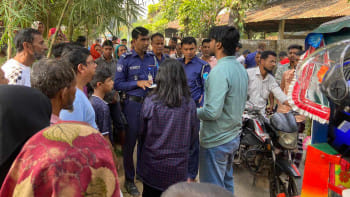Insufficiency on witness protection

The protection of witnesses plays a key role in the successful functioning of the Court. But unfortunately in our country, the trend is such that the witnesses do not wish to come to the courts to give their statements and evidences as they feel unsafe. In this situation, the Court has a duty to take appropriate measures to protect the safety, physical and psychological well-being, dignity and privacy of witnesses.
Generally in the occurrence of rape, it is difficult to get eye witness as it mostly takes place in closed rooms or in secret places. In this situation, the testimony of a victim is the best and the only evidence that can be obtained by the prosecution against the accused. But witnesses are reluctant to appear before the court fearing their life and property. As a result, cases of such crimes of heinous nature are resulting in acquittals of criminals in most of the cases.
The witness feels uncomfortable in giving answers in the presence of the offender. Sometimes, it is found that the complainant as witness in court, contradicts his/her own statement made in the First Information Report (FIR) or during investigation because of the fear of consequence at the time of his/her returning to home from the court after giving deposition. In such a situation he/she may not be able to give details of the incident which may result in a miscarriage of justice.
At present, there is no specific law on the protection of witnesses in Bangladesh where there is a directive from the High Court in 2010 in a writ petition namely BNWLA v Government of Bangladesh (Writ Petition No. 8769 of 2010) where it was said that “Government shall take immediate steps to enact law for introduction of witness and victim protection system for effective protection of victims and witnesses of sexual harassment as well as the people who come forward to resist sexual harassment.”
Article 35 of the Constitution says that the accused of a criminal offence shall be entitled to get a speedy and public trial by an independent and impartial court or tribunal. It is an established principle that any accused shall be presumed to be innocent until and unless their guilt is proved by the prosecution “beyond all reasonable doubts”. Thus it appears that the existing laws and the principles of criminal justice system favour the right and protection of the accused. But no specific law is there providing for the rights and protection of the witnesses although they are the principal actors for the prosecution to prove the case “beyond all reasonable doubt”.
On the other hand, sections 151 and 152 of the Evidence Act, 1872 forbid indecent, scandalous and insulting questions to the witness. But these two sections protect the witnesses only in the court-room. Section 506 of the Penal Code, 1860 provides for punishment for committing criminal intimidation. Criminal intimidation has been defined under section 503 of the Penal Code, which is fairly wide no doubt, but it still falls short of giving sufficient protection to the witness.
The International Crimes (Tribunals) Act, 1973 does not contain any provision regarding witness protection. But the Rules of procedure have been amended in June 2011 where under the new Chapter VIA, a new Rule 58 A (1) has been inserted on witness and victim protection. Sub Rule 02 inserted arrangements of accommodation of witnesses or victims and other necessary measures regarding camera trial and keeping confidentiality as necessary where violation of such undertaking shall be prosecuted under section 11(4) of the Act. The success of these protective measures is yet to be proved especially with regard to the sexual violence witnesses.
The Law Commission has submitted two reports to the Law Ministry on the protection of witness and victim issue. The First one was submitted in 2006 namely 'Final Report on a proposed law relating to protection of victims and witnesses of crimes involving grave offences' (Report No 74). And second one was submitted in 2011 (Report No 108). In the first report, the Commission has proposed a draft law on the protection of witness and victim. The proposed law addresses many significant needs of members of this vulnerable group, and acknowledges the importance of support mechanisms that address physical, psychological, and economic wellbeing of victims and witnesses who will testify before the Court.
It is high time to consider to legislate a specific law on the witness protection providing for the rights, privileges and protection of the victims and witnesses and where necessary their family members. We hope the government will enact the draft law proposed by the Law Commission on the protection of witness and victim within a very short time.
The writers are Additional District Judge, Rajbari and Student of Law, University of Dhaka respectively.


 For all latest news, follow The Daily Star's Google News channel.
For all latest news, follow The Daily Star's Google News channel. 



Comments